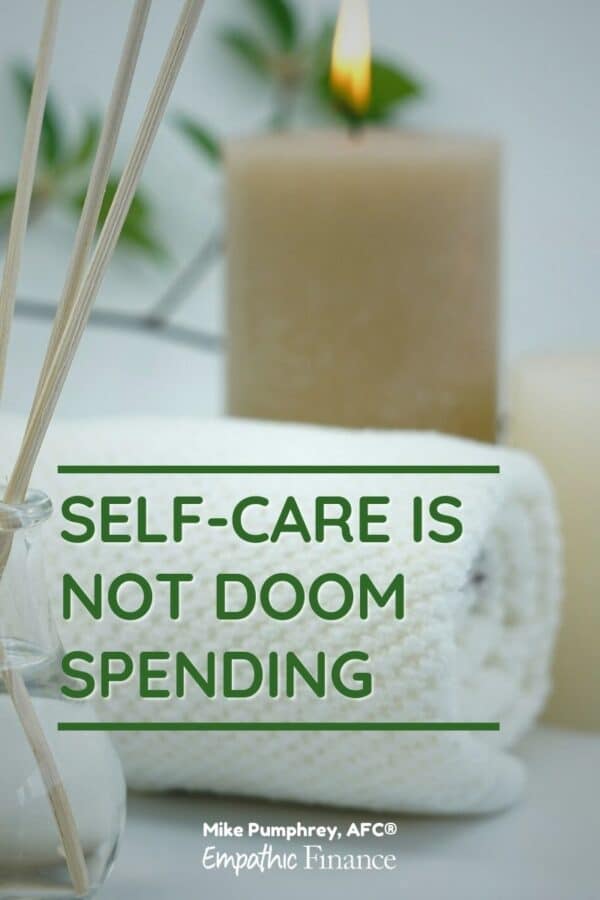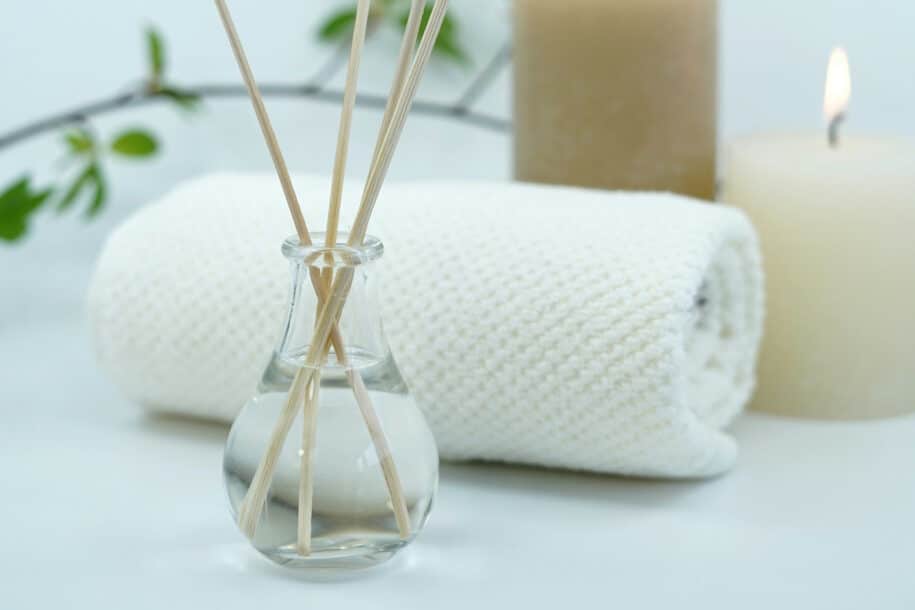Self-care is an important part of life, and it’s okay (not reckless, and certainly not doom spending) to allocate money for this purpose.
I don’t always know who I’m writing to.
In my experience, I can divide my community (that’s you) roughly into two camps: the camp that may spend money to excess, and the camp that may not allow themselves to spend money.
The best path forward, as always, lies somewhere in the middle. And I find myself sharing strategies to rein in spending in the former camp, and strategies to feel comfortable spending in the latter.
With my coaching clients, I always help them implement spending category “targets” on various expenses (groceries, restaurants, etc.) For some people, that’s to make sure they don’t spend more than that target, but for others, to make sure that they don’t spend less!
Which brings me to the topic at hand today. In my last post, I talked about the recent (or recently-named) trend of “doom spending“, that is the act of spending money in an unsustainable or self-defeating way because of a feeling of defeat over feeling financially unsuccessful.
Looking back, in that post I was talking to the folks in the former category above, the ones who may just throw their budget out the window and say, “the heck with it, I’m buying a first-class trip to Bali, because I’ll never be able to buy a home anyway, so what does it matter?”
But it turns out that the other camp was reading too, and they may have taken things in an entirely different way.
Table of Contents
A conversation
“I read your post about doom spending. I wonder if I’ve been doing that recently.”
So began the conversation. I was curious to hear about the spending in question, and the rationalization that underpinned it.
“Well, when I think about the future, it’s just unclear what it’s going to look like, and so I thought, well, maybe I could just get a pedicure and a massage and not worry about it.”
Remember those camps above? As the conversation continued, I realized that I was talking to someone in the second camp.
I was stopped a bit short. This was someone who was equating a bit of self-care with doom spending.
So clearly, some clarification is needed.
Self-care versus doom spending
You are allowed to spend money to take care of yourself. Full stop.
You are allowed to spend money on things that make you happy, that are “just for fun”. In fact, a “fun” category is one of the most important categories that people either miss or underuse.
Financial wellness is a tension between living for today and planning for tomorrow. It is not one or the other.
Doom spending is purely about living for today. Racking up credit cards you’ll never be able to pay off. Blowing your savings.
But I’m not sure that’s any more destructive to one’s life than not living for today at all. Not spending money on the pleasures of life, be it things or experiences.
One of the reasons why I suggest my clients my spending targets, is to make sure they spend up to them. I always say, “this is your allowance to spend money!”
Self-care falls firmly in the category of the acceptable ways that you can be good to yourself. The main difference between doom spending and self-care is the order of magnitude of spending. Doom spending has a lot more zeroes.
It isn’t doom spending to get a massage.
Caveats
Now, there’s self-care and then there’s self-care. Buying a luxury cruise ticket for $10,000 under the guise of self-care probably isn’t in your monthly (or yearly) budget. And if a massage is going to be tough to afford, you may not want to do them very often.
But let’s make sure we agree on the terms here. We may or may not be heading into a dark future; no one can say. And people do indeed have financial challenges that make getting ahead more difficult. I personally think that those who are just treading water financially have options they probably haven’t tried.
Regardless of what doom may or may not be in the cards in our future, doom spending and self-care are not the same thing. And there is nothing wrong with a little self-care.



